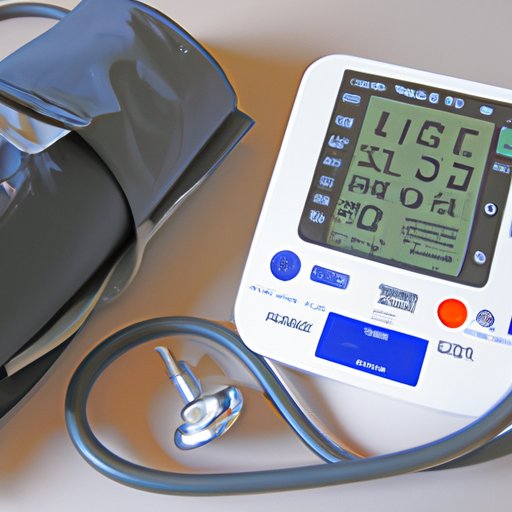
Understanding High Blood Pressure and Its Impact on Overall Health
High blood pressure, also known as hypertension, is a very common condition where the force of blood against the walls of your arteries is too high. It can happen to anyone and is largely asymptomatic, which is why it is often referred to as the “silent killer”. According to the American Heart Association, blood pressure readings of 130/80 mmHg or above are considered high. High blood pressure can put a strain on your heart, kidneys, and other organs, leading to serious health complications.
Symptoms of High Blood Pressure
High blood pressure often has no symptoms at all, which makes it even more dangerous. Some people may experience symptoms such as headaches, shortness of breath, nosebleeds, or chest pain. However, these symptoms can be caused by other conditions as well, so it’s important to get a proper diagnosis. High blood pressure can be caused by several factors such as genetics, age, diet, lack of exercise, and stress.
Understanding Blood Pressure Levels
Blood pressure is measured in two numbers: systolic pressure (the upper number) and diastolic pressure (the lower number). Systolic pressure measures the force in your arteries when your heart beats, while diastolic pressure measures the force in your arteries when your heart rests between beats. Normal blood pressure is considered to be 120/80 mmHg. High blood pressure is defined as a reading of 130/80 mmHg or higher, and a reading between 120-129/less than 80 is considered elevated. High blood pressure is a serious health concern because it can damage your organs and lead to cardiovascular disease.
Lifestyle Changes to Lower Blood Pressure
Fortunately, there are several lifestyle changes you can make to lower your blood pressure and improve your overall health. One of the main changes is ensuring that you have a healthier diet. You should reduce your intake of processed foods, salt, sugar, and unhealthy fats. Instead, focus on consuming more fruits, vegetables, whole grains, and lean proteins. It is also important to incorporate exercise into your routine. Aim for at least 30 minutes of moderate activity daily, such as a brisk walk. Stress can also affect your blood pressure, so take steps to manage it through activities such as meditation or yoga.
Common Medications for High Blood Pressure
If your blood pressure is significantly high, you may require medication. Several medications are available, including diuretics, beta-blockers, ACE inhibitors, and calcium channel blockers. Each medication has its own pros and cons, and your doctor will advise you on the best one for you. One potential side effect of high blood pressure medication is dizziness, so it is important to monitor your reactions and follow your physician’s instructions.
The Importance of Managing High Blood Pressure
High blood pressure is a serious health issue that can cause a variety of complications. It can lead to cardiovascular disease, heart attack, and stroke. It can also cause kidney damage and vision loss. It’s important to take steps to manage your blood pressure through lifestyle changes and/or medication. Some tips for staying motivated include finding a supportive group of family or friends, tracking your progress, and celebrating small milestones along the way. As always, consult with a medical professional to help find the best method for managing your blood pressure.
Conclusion
High blood pressure is a common health concern, but with proactive management, it can be controlled. Symptoms are often not present, which means that it is important to regularly check your blood pressure, especially if you have any risk factors. Making small lifestyle changes like exercise and healthy eating is a great way to get a handle on high blood pressure before it becomes a major issue. For more information, consult your doctor or speak with a nutritionist.




